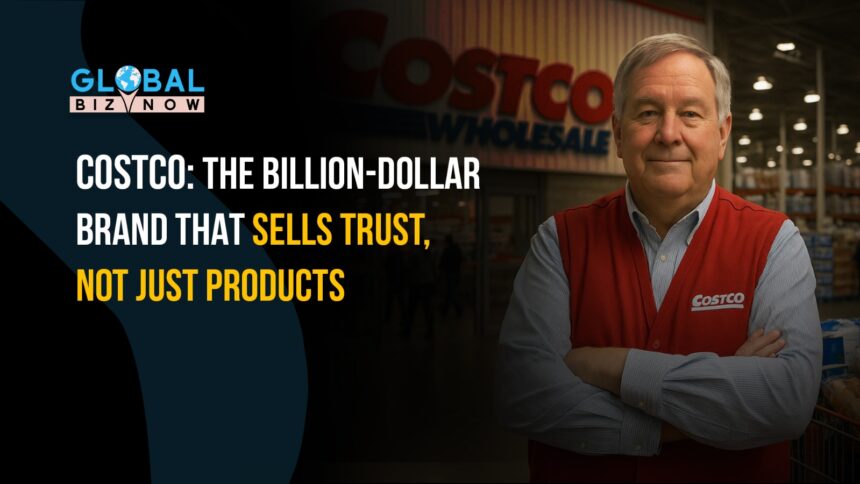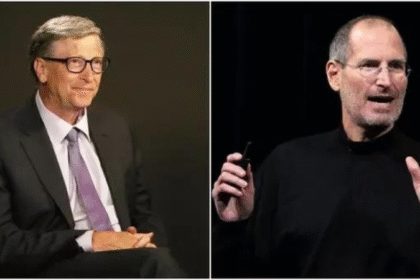Costco is not just a warehouse retailer; it’s a brilliant business model that thrives on a powerful combination of trust, consistency, and value. While many companies chase the next big trend or gimmick, Costco has built a billion-dollar empire based on simple, yet deeply effective principles. Here’s why Costco is arguably one of the most strategically sound companies in the world.
- Trust Over Tricks: The Secret Behind Costco’s Success
- The $1.50 Hot Dog: A Symbol of Consistency and Respect
- A Warehouse Experience with a Treasure Hunt Twist
- No Flash, Just Substance: Costco’s Approach to Customer Relationships
- Treating Employees Right: A Fundamental Ingredient for Success
- The Costco Lesson: Integrity Over Profits
Trust Over Tricks: The Secret Behind Costco’s Success
At the core of Costco’s success is a simple idea: it doesn’t rely on selling products to make money. Instead, Costco focuses on serving its members. Last quarter alone, the company reported a net profit of $1.68 billion — with a staggering $1.12 billion coming directly from membership fees. This isn’t just a nice-to-have; it’s the cornerstone of Costco’s business model.
Costco doesn’t need to upsell customers on every visit because its primary goal is to earn and keep trust. This approach has proven successful. With over 134 million paying members and a renewal rate of 93%, Costco has achieved what most businesses can only dream of — cult-level loyalty.
The $1.50 Hot Dog: A Symbol of Consistency and Respect
Since 1985, Costco has kept one thing unchanged: its famous $1.50 hot dog-and-soda combo. In a world where inflation and rising prices are the norm, Costco’s decision to keep this iconic deal steady is more than just about food. It’s symbolism. It signals to customers that Costco respects their hard-earned money, fostering a sense of fairness and reliability.
This simple, consistent offer represents Costco’s commitment to value — a value that extends far beyond its food courts.
A Warehouse Experience with a Treasure Hunt Twist
Walk into a Costco, and you’ll immediately notice something different: it doesn’t look like your average retail store. There’s no music, no fancy lighting, and the floors are made of concrete. The products are stacked in bulk, giving the store a warehouse feel. Yet, as consumers, we don’t mind — because the treasure hunt experience at Costco is irresistible.
The Costco Effect is real. You go in to buy a pack of toilet paper, and you walk out with a kayak, a 98-inch TV, or a 6-foot teddy bear. It’s a phenomenon that Costco has mastered: creating a feeling of accomplishment, almost as if you’ve found a hidden gem. This calculated strategy turns a simple trip into a psychological experience that keeps consumers coming back for more.
No Flash, Just Substance: Costco’s Approach to Customer Relationships
One of the standout aspects of Costco’s model is its restraint when it comes to customer manipulation. Unlike most other retailers, Costco doesn’t sell shelf space. It doesn’t bombard you with flashy ads or track your browsing habits across the internet. Instead, Costco relies on its reputation for value, focusing on products, not advertisements.
In today’s digital age, companies are constantly tracking our every move online, but Costco has resisted this trend for years. While this is beginning to change with the rise of retail media, for decades, Costco’s business model has been built on restraint. It’s a refreshing approach in a world where most companies prioritize customer data manipulation. Costco has thrived without the need for intrusive marketing tactics.
Treating Employees Right: A Fundamental Ingredient for Success
Costco’s dedication to its employees is another key factor in its success. The average Costco worker earns $26 per hour, nearly 50% more than the average U.S. retail worker. Many of Costco’s managers have started from the ground up, working as forklift operators before rising through the ranks.
Why does this matter? Because Costco believes that a respected employee leads to a respected brand. By investing in its employees, Costco ensures they feel valued and motivated, which translates into a customer-first mentality. And Wall Street loves it. Costco’s stock has grown 17% annually since it was launched, proving that when you treat employees well, your business and profits grow too.
The Costco Lesson: Integrity Over Profits
So, what can businesses learn from Costco’s success? The answer lies in the company’s unshakeable focus on purpose over profits. Costco didn’t try to trick customers into buying more. Instead, it made its customers feel smart for shopping there — the epitome of building a relationship of trust.
Costco has proven that you don’t need flashy advertisements, sneaky data mining, or inflated prices to succeed. All you need is consistency, integrity, and an obsession with value. And, yes, maybe a $1.50 hot dog.
In a world full of short-term thinking, Costco’s commitment to its values makes it a standout example of a business model done right — and one that other companies should aspire to replicate.
Costco’s approach isn’t about quick wins; it’s about creating a brand that’s built on trust and value for the long haul. And perhaps that’s the real secret behind its billions. GBN


















